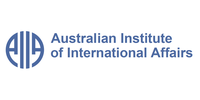**Please note this event has been cancelled**
In August 2023, the Albanese government published the new Australia's International Development Policy. After a period of stagnation and ailing budget under Coalition governments, the new Labor government has set out to re-energise Australia's development policy. This appears to be a much needed step. For decades, China has been ramping up its political, economic, and security engagement in Southeast Asia and the South Pacific, animating fears in Canberra that Australia is losing influence in its neighbourhood to Beijing. Even more importantly, the looming risks deriving from accelerating climate change, and the rising demand for infrastructure and other public goods in the region cannot be left unaddressed – as the Albanese government recognises that it is in Australia's best interest to tackle these issues.
The new International Development Policy is directly aimed at these issues. It is conceived as a "tool of statecraft" to "advance an Indo-Pacific that is peaceful, stable, and prosperous". It prioritises building effective and accountable states, state and community resilience, connectivity, and mobilising collective action to address global problems. In contrast to previous policies, it declares to do so by leveraging Australia's values and identity, embracing a first-nations approach. Lastly, the policy document sets out to overhaul the performance and transparency review mechanisms. What are the challenges and opportunities ahead and what is the role of development policy in Australia's foreign policy?
